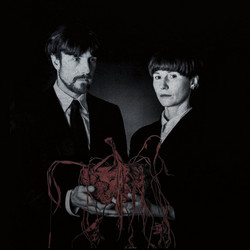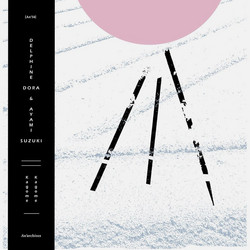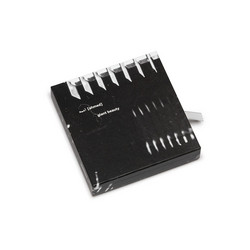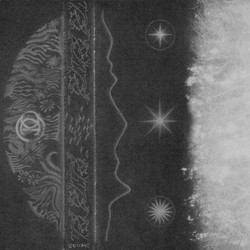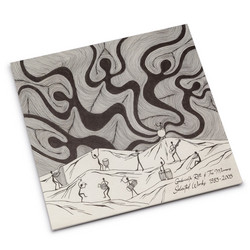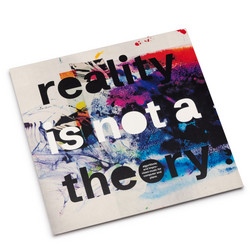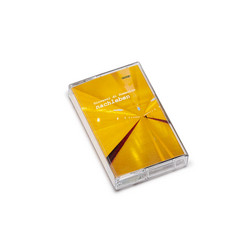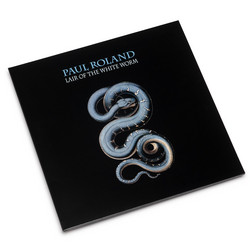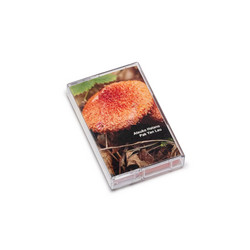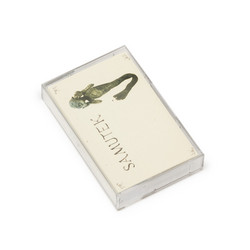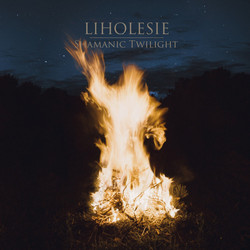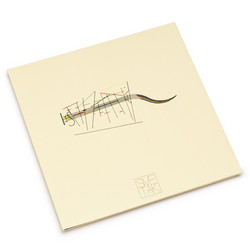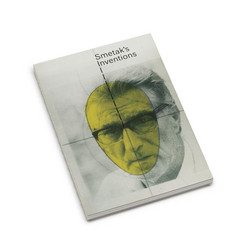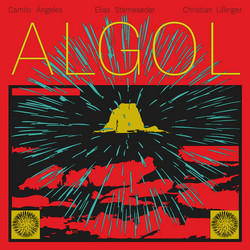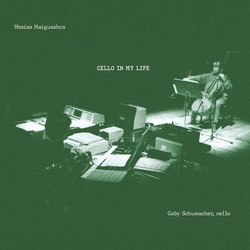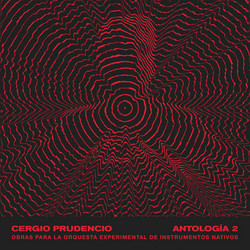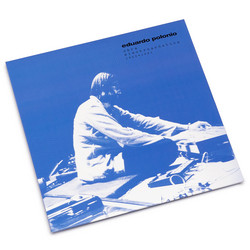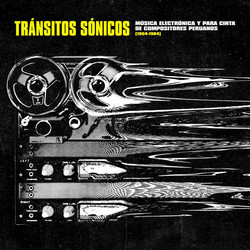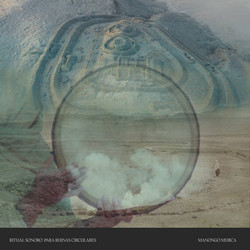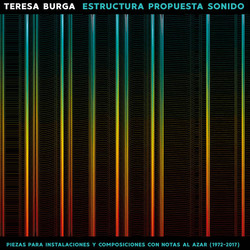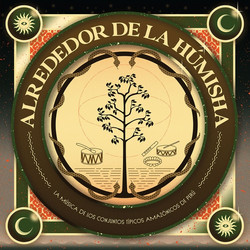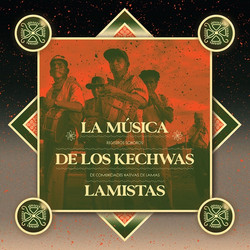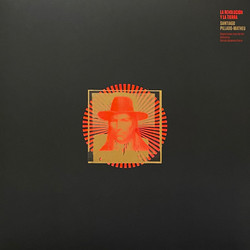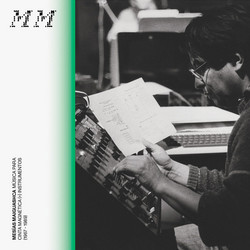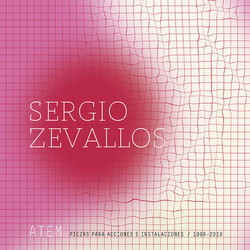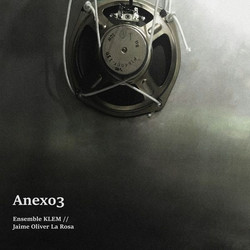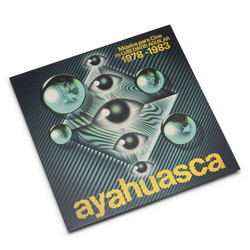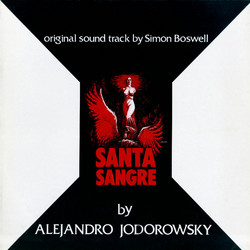Walter Smetak
Interregno + Smetak (2LP in bundle)
** Special bundle of the two seminal Walter Smetak albums re-issued by Buh Records ** In recent years the Lima based imprint, Buh Records - run by Luis Alvarado - has issued an astounding array of little heard Latin American experimental music onto the world stage, offering particular focus to work - contemporary and historic - from Peru. Their latest, two long overdue vinyl reissues of the lone albums - 'Smetak' (1974) and 'Interregno' (1980) - produced by the seminal Swiss / Brazilian musician, composer, writer, sculptor and instrument maker Walter Smetak - are among the most exciting so far. Truly mind-blowing and game changing, bridging experimental music with mystical religion, Afro-Brazilian ritualistic traditions, microtonality studies, and open, collective improvisational processes, there’s little question why they have become, over the decades since their initial releases, among the most sought-after albums in the entire canon of Latin American avant-gardism. Released in a fully remastered limited editions of 500 copies, housed in beautiful sleeves that immaculately reproduce their original editions with new additions, both are as highly recommended as reissues come.
Walter Smetak - Smetak
Born in Zurich, Switzerland in 1913, the cellist, composer, instruments builder, sculptor, and writer, Walter Smetak, belongs to a generation of European avant-garde musicians and composes who fled Europe during the 1930s and 40s and found their way to Latin America. Some returned home at end of the Second World War, others, like Smetak, who completely immersed themselves in the cultures of their new homes and never left. The narrative of these artists, and what unfolded as a result of their migration, remains one of the most important and least mentioned contributors to the evolution of mid 20th century experimental creative practice. Not only did it produce astounding artistic hybrids and cross-cultural understanding, but laid the groundwork for an incredibly fruitful open discourse between Latin America and European artists in experiential music that lasted for decades, only to become obscured by rise of oppressive dictatorships in Latin America and deep tendencies toward Eurocentricity in other parts of the of the world.
Following his migration to Brazil in 1937, Smetak's creative energies were ignited, leading to the invention of unique musical instruments that he would play and compose an astounding body of music, for which he become regarded as a forerunner and early influence on the musicians and artists who would form the core of Tropicalia - Caetano Veloso, Gilberto Gil, Tom Zé and Torquato Neto - many of whom he would from deep collaborative relationships with across the 60s and 70s.
An emblematic figure of the Bahian avant-garde who offered a legendary series experimental music workshops at University of Bahia, Smetak only produced two albums during his lifetime, 'Smetak' (1974) and 'Interregno' (1980). The first of these was produced by Caetano Veloso and Roberto Santana, with the support of Gilberto Gil, and remains among the most sought-after albums in the entire canon of Brazilian and Latin American experimental music.
'Smetak' stands as an entirely singular universe of sound, unlike almost anything else in the history of recorded music. Rooted in the composer’s long-standing investigations into Afro-Brazilian ritualistic traditions, microtonality studies, and open, collective improvisational processes, the album gains particular distinction through its stunning graphic score and 150 unique instruments, made from PVC pipes, pumpkins and polystyrene foam, etc. - “plásticas sonoras” invented and constructed by the composer - the creation of which were underscored by the influence of theosophy, the mystical religion that Smetak embraced following his arrival in Brazil.
With its sounds played by an amazing cast of characters - in addition to Smetak, Caetano Veloso, Roberto Santana, Gereba, Tuzé Abreu, Djalma Correa, Capenga, and others - Smetak is divided into 11 discrete works of varying length over its two sides. Incorporating a vast range of sonorous textures and tones within complex open structures, the album operates as seamless expanse of sound punctuated by shifting temperaments, often reminiscent of 1970s European free jazz, spun out at a glacial pace and filtered through distinctly Brazilian sensibilities.
Writhing and deeply conversant, 'Smetak' will inevitably unfurl numerous revelations - both cultural and creative - for any fan of experimental music lucky enough to encounter it for the first time. This stunning, first-ever vinyl reissue, released by Buh in a limited edition of 500 copies, comes fully remastered in beautiful sleeve that immaculately reproduces the original 1974 Phillips edition, and contains a complete catalog of the instruments used in its recording, as well as booklet containing new photos and liner notes, in both English and Portuguese, written by Caetano Veloso. Truly game-changing and as recommended as reissues come!
Walter Smetak - Interregno
Released 6 years after 'Smetak', Walter Smetak’s second and final LP, 'Interregno' (1980), builds upon the entirely unique universe of sound established by its predecessor, but encounters him entering even more radial and unique territory, deploying his “plásticas sonoras” within a more expanded pallet of instrumental sources and structure.
Produced by Carlos Pita, 'Interregno', in addition utilizing a vast range of Smetak’s “plásticas sonoras” - the instruments that he invented and built to create his highly individual sound - features an ensemble of microtonal guitarists, deploying the unconventional tunings that the composer was exploring during this period, in dialogue with a Yamaha electric organ that opened new possibilities from sustained tones.
Like 'Smetak', 'Interregno' channels the composer’s investigation of Afro-Brazilian ritualistic traditions, microtonality studies, and open, collective improvisational processes, while tracing around the borders staked by European free jazz during this era. With this in hand, the album is truly distinct, marked by unique formations of frenetic pacing and the complex interplay of tonal relationships and structure, the likes of which can be heard almost nowhere else.
Writhing and deeply organic from start to finish, across the two sides of 'Interregno', Smetak sculpt a deeply personal and unique form of sonic ritualism and collective interaction that still stands entirely on its own more than 40 years after it was first laid to tape.
As Marco Scarassatti, author of one of the most important studies on Smetak, states, “His original and metaphysical work goes beyond any mysticism created around his figure. He investigated the relationship between sound and light, space and form, microtonality, collective improvisation, as a sound alchemist, a multimedia and unplugged prophet-visionary. While transforming matter, Smetak transformed himself and many of those around him.” Once heard, the composer’s grand finale, 'Interregno', can’t help but same effect on its listeners.
An absolute revelation, this stunning, first-ever vinyl reissue of Walter Smetak’s 'Interregno', released by Buh in a limited edition of 500 copies, comes fully remastered in beautiful sleeve that immaculately reproduces the original 1980 Phillips edition, and contains a complete catalog of the instruments used in its recording. As visionary and unique as records come, and truly distinct manifestation of experimental music that couldn’t have happened anywhere but in Brazil, this one is as historically important as reissues come. Hats off to Buh, they’ve done it again. Not to be missed and as essential as they come!



